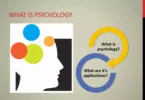The word pragmatism has been derived from the Greek word pragma, which means action. The term “paradigm” signifies the foundational philosophical assumptions that guide researchers’ actions and shape their broadview or worldview.
A paradigm is a set of shared generalizations, beliefs, and values within a community of specialists, influencing their perceptions of reality and knowledge.
The term “worldview” is often used interchangeably with paradigm and is defined as a way of thinking about and making sense of the complexities of the real world.
Various paradigms, including positivism, interpretivism, the critical research paradigm, and only surface-level pragmatism, were discussed earlier. In this article, we will discuss pragmatism in detail. Although all the basic pillars of these paradigms are shared and have common elements, they only differ in:
Axiology (beliefs about values and morals)
Ontology (assumptions about the nature of reality) and epistemology (assumptions about knowledge acquisition)
Methodology (shared understanding of research methods)
Rhetoric (the shared language of research)
There are core differences between them (Creswell, 2009).
Paradigms serve as conceptual and practical “tools” to address specific research problems, acting as heuristics in social research. Each paradigm offers a distinct perspective on axiology, ontology, epistemology, methodology, and rhetoric.
For instance, postpositivism, associated with quantitative methods, emphasizes precision, generalizability, and replicability, employing formal rhetoric. On the other hand, constructivism, linked to qualitative methods, utilizes informal rhetoric and focuses on participants’ views and subjective meanings of phenomena.
Participatory action research seeks reform and empowerment, involving participants at every research step. It aligns with qualitative methods and emphasizes advocacy and change. Pragmatism, positioned between scientific and naturalistic orientations, aims to bridge the gap between older and newer approaches (Creswell, 2013).
In the context of education and other educational professions, debates on knowledge acquisition and pragmatic applications are common. Education scholars increasingly turn to pragmatism’s philosophical analysis to advocate for its value in creating knowledge. This essay critically reviews and synthesizes the literature on pragmatism as a research paradigm, analyzing its philosophical views, methodological challenges, and relevance within education research. The goal is to contribute to a comprehensive understanding of pragmatism’s role in the pursuit of education.
In this article, we are going to discuss pragmatism as a research paradigm.
Charles Sanders Peirce (1839–1914) is considered the father of pragmatism. Peirce was an American scientist, mathematician, logician, and philosopher. He developed the philosophy of pragmatism through articles in major American political science journals.
Some other notable proponents of pragmatics include:
First Generation:
- Charles Sanders Peirce (1839–1914): Often considered the founder of pragmatism, Peirce developed the “pragmatic maxim” and explored the relationship between meaning, belief, and action.
- William James (1842-1910): Popularized pragmatism, emphasizing its focus on practical results and its potential to address real-world problems.
- John Dewey (1859–1952) applied pragmatist principles to education, social reform, and political theory, emphasizing the importance of experience, inquiry, and democracy.
Second Generation:
- George Herbert Mead (1863-1931): Developed the concept of social self and explored the role of communication and interaction in shaping individual identities.
- C.I. Lewis (1874-1964): Further developed the theoretical foundations of pragmatism, focusing on the logic of inquiry and the nature of knowledge.
- Jane Addams (1860-1935): Pioneered social work and applied pragmatist principles to address social issues like poverty and inequality.
- Oliver Wendell Holmes Jr. (1841-1935): Influential legal philosopher who applied pragmatist ideas to law and jurisprudence.
Later Pragmatists:
- Wilfrid Sellars (1912-1989): Analyzed the relationship between language, thought, and reality from a pragmatist perspective.
- W.V.O. Quine (1908-2000): Developed a naturalistic approach to pragmatism, emphasizing the role of science and experience in shaping our understanding of the world.
- Richard Rorty (1931-2007): Emphasized the role of pragmatism in promoting social justice and democratic values.
- Hilary Putnam (1926-2016): Explored the relationship between pragmatism and realism, advocating for a non-representationalist approach to truth.
Ontology in Pragmatism:
Pragmatism ontologically refrains from engaging in contentious metaphysical concepts such as truth and reality. It acknowledges the existence of single or multiple realities that are open to empirical inquiry. Pragmatism asserts that reality is grounded in the environment and can only be encountered through human experience. The ontological perspective of pragmatism rejects the idea of a fixed and predetermined reality, emphasizing the dynamic nature of reality as shaped by human experiences.
Core Principles:
- Rejects fixed reality: Pragmatism emphasizes the dynamic and fluid nature of reality, rejecting the notion of a pre-existing, static world.
- Emphasizes dynamic reality: Reality is constantly evolving and being shaped by human experiences and interactions with the environment.
- Grounds reality in environment: The environment is not simply a passive backdrop, but actively contributes to the formation and transformation of reality.
- Acknowledges multiple realities: Different individuals and communities may experience and understand reality in diverse ways, leading to the possibility of multiple, valid perspectives.
- Avoids metaphysical concepts: Pragmatism is generally skeptical of abstract, non-empirical concepts like “truth” and “reality,” focusing instead on their practical application and consequences.
- Focuses on human experience: Our understanding of reality is ultimately grounded in our own experiences and interactions with the world.
- Open to empirical inquiry: Knowledge is acquired through ongoing investigation and experimentation, not through pre-conceived notions or fixed truths.
Implications:
- Emphasis on action and practice: Pragmatism encourages us to focus on the practical consequences of our beliefs and actions, rather than getting caught up in theoretical debates about the nature of reality.
- Rejection of absolute truths: There are no universal, unchanging truths about the world; what is true for one person or community may not be true for another.
- Accommodation of diverse perspectives: This openness to multiple realities allows for greater tolerance and understanding of different viewpoints and experiences.
- Importance of social interaction: Our individual understanding of reality is shaped by our interactions with others and the social environment we inhabit.
Challenges and debates:
- Defining “environment”: The precise role and nature of the environment in shaping reality remains a topic of discussion among pragmatists.
- Reconciling individual and collective realities: It can be difficult to reconcile individual experiences and perspectives with the notion of a shared, social reality.
- Avoiding relativism: While acknowledging multiple realities, pragmatism also seeks to avoid falling into complete relativism, where all perspectives are equally valid and no objective truth exists
Epistemology in Pragmatism:
The epistemological foundation of pragmatism is rooted in the belief that knowledge is always based on experience. Each individual’s perceptions of the world are shaped by their unique social experiences, resulting in knowledge that is both unique and socially shared. Pragmatist epistemology views knowledge not as an absolute reality but as a construct created with the purpose of better managing one’s existence and actively participating in the world. Knowledge, according to pragmatism, is a tool for inquiry and action, with a focus on resolving uncertainties and supporting purposeful action.
Core Principles:
- Experience-based knowledge: Knowledge is not passively acquired but actively constructed through individual and social experiences.
- Uniquely shared knowledge: Individuals shape and share knowledge within their specific social contexts, leading to both unique and shared understandings.
- Constructivism: Knowledge is not a reflection of a pre-existing reality but a tool we build to navigate and interact with the world.
- Pragmatic function: Knowledge serves a practical purpose, aiding us in solving problems, making decisions, and taking action.
- Inquiry and action: The pursuit of knowledge is not an end in itself but a means to improve our understanding and agency in the world.
- Uncertainty and doubt: Pragmatism acknowledges the inherent uncertainty and doubt in our knowledge, emphasizing the need for ongoing inquiry and revision.
Implications:
- Emphasis on practical application: Knowledge is valued not for its theoretical purity but for its usefulness in solving real-world problems.
- Openness to revision: Knowledge is not static but constantly evolving as we encounter new experiences and perspectives.
- Importance of social context: The social context in which knowledge is generated and shared plays a crucial role in shaping its form and content.
- Focus on inquiry and problem-solving: Knowledge is best acquired through active engagement with the world, asking questions, and seeking solutions to real problems.
Challenges and debates:
- Relating individual and social knowledge: Balancing the unique perspectives of individuals with the shared knowledge of communities can be challenging.
- Defining practical value: Determining the “practical value” of knowledge can be subjective and vary depending on individual goals and contexts.
- Avoiding relativism: While acknowledging the social construction of knowledge, pragmatism must avoid falling into complete relativism where all perspectives are equally valid.
Methodology in Pragmatism:
Pragmatism, as a research paradigm, orients itself towards solving practical problems in the real world. It emerged as a method of inquiry particularly suited for practical-minded researchers. Pragmatist methodology rejects traditional philosophical dualism, avoiding forced dichotomies like postpositivism and constructivism. Empirical approaches are preferred over idealistic or rationalistic methods. Pragmatist researchers emphasize the effectiveness of an inquiry in achieving its purposes, with a focus on outcomes. The choice of one version of reality over another is guided by how well that choice aligns with anticipated or desired outcomes. In designing and conducting research, pragmatist researchers prioritize the usefulness and instrumentality of philosophical assumptions, methodologies, and information in producing desired or anticipated results.
Core Principles:
- Real-world focus: Pragmatism is primarily concerned with solving practical problems and improving our understanding of the real world.
- Anti-dualism: It rejects the strict separation of mind and body, subject and object, and theory and practice, instead emphasizing their interconnectedness.
- Empiricism: Pragmatism relies on empirical methods like observation, experimentation, and data analysis to gather evidence and test hypotheses.
- Outcome-oriented: The effectiveness of a method is judged by its ability to achieve desired outcomes and solve real-world problems.
- Instrumentalism: Philosophical assumptions, methodologies, and information are viewed as tools to be used for practical purposes, not ends in themselves.
- Pluralism: Pragmatist methodology embraces different approaches and methods, choosing the one that best suits the specific research question and context.
Implications:
- Flexible and adaptable: Pragmatist methodology allows for flexibility and adaptation to different research contexts and situations.
- Focus on problem-solving: Research questions and methods are chosen based on their potential to solve real-world problems and improve conditions.
- Emphasis on collaboration: Pragmatist research often involves collaboration between researchers and stakeholders to ensure the research is relevant and impactful.
- Openness to revision: Findings are not seen as absolute truths but as tentative solutions that may be revised based on new evidence or changing circumstances.
Challenges and debates:
- Defining “practical problems”: Determining which problems are considered “practical” and worthy of research attention can be subjective and context-dependent.
- Balancing outcomes and values: While pragmatism emphasizes outcomes, it also faces the challenge of ensuring those outcomes align with ethical and social values.
- Evaluating effectiveness: Assessing the effectiveness of research in achieving desired outcomes can be complex and multifaceted.
History and Ideas of Pragmatism in Research
Pragmatists contend that the meaning of human actions and beliefs lies in their consequences, and individuals play an active role in shaping their experiences through actions and intelligence. Reality and the world are dynamic, constantly changing through actions, making actions pivotal in pragmatism.
Derived from the Greek word “pragma,” meaning action, pragmatism asserts that human actions are inseparable from past experiences and the beliefs derived from them. Human thoughts are intrinsically tied to action, with actions shaping experience and beliefs.
Pragmatism as a research paradigm is deeply rooted in the historical evolution of the philosophy of pragmatism, embracing a diverse range of methods. This paradigm is evolved by the belief that researchers should employ the philosophical or methodological approach most suited to the specific research problem at hand (Tashakkori and Teddlie, 1998). Often associated with mixed-methods or multiple-methods, pragmatism prioritizes the consequences of research and the research questions over rigid adherence to particular methodologies allowing for the use of both formal and informal rhetoric.
The term “pragmatism” was first employed by William James in 1898, acknowledging Charles Sanders Peirce as the source of pragmatic philosophy. Richard Rorty later popularized the term outside philosophical circles in 1979, introducing it into the American research vocabulary ( Ormerod, 2006).
Pragmatism emerged as a rejection of traditional assumptions about reality, knowledge, and inquiry, challenging the notion that a single scientific method could access social science reality (Maxcy, 2003).
The philosophical roots of pragmatism trace back to the late 19th century in the United States, originating in a discussion group in Cambridge, Massachusetts. Founding figures of pragmatism, including Charles Sanders Peirce, William James, Chauncey Wright, Oliver Wendell Holmes Jr., John Dewey, George Herbert Mead, Arthur F. Bentley, and others, laid the groundwork for this distinctly American philosophical doctrine ( Morgan, 2014a).
Drawing on John Dewey’s work, identifies three key ideas central to pragmatism.
- Actions are embedded and cannot be separated from the situations and contexts in which they occur. It emphasize unique human experiences and warranted beliefs emerging from repeated actions.
- Actions are linked to consequences in ways that are open to change,” highlighting the provisional nature of beliefs as situations evolve.
- Actions depend on worldviews that are socially shared sets of beliefs,” recognizing the uniqueness and shared aspects of individual worldviews, influencing actions and interpretations of consequences (Morgan, 2014a).
Philosophical Underpinnings of Pragmatism
Pragmatism, as a research paradigm, diverges from the contentious metaphysical debates surrounding truth and reality. Instead, it embraces the idea that there can be single or multiple realities, subject to empirical inquiry. Within this paradigm, scholars acknowledge an objective reality grounded in the environment but accessible only through human experience. A fundamental tenet of pragmatist philosophy posits that knowledge and reality are products of socially constructed beliefs and habits. While recognizing that all knowledge is socially constructed, pragmatists contend that some constructions align more closely with individual experiences.
Pragmatists challenge the notion that reality can be definitively determined, viewing it as a normative concept that is true to the extent it proves useful in navigating diverse experiences. Truth, for pragmatists, is not an absolute concept but is contingent on individual use and the scrutiny of time. Importantly, pragmatists do not dismiss philosophical arguments; rather, they recognize the inseparability of meaning from human experience and context.
Methodological Challenges of Pragmatism
Pragmatism’s methodological stance emphasizes the centrality of the research question, promoting a flexible and reflexive approach to design. Positioned between positivism and constructivism, pragmatism allows for a continuum in the process of acquiring knowledge, accommodating both quantitative and qualitative approaches.
The pragmatist researcher, guided by the research question, selects methods that best address the inquiry, breaking away from rigid ontological commitments. A pragmatist approach to mixed-methods research aligns with the paradigm’s emphasis on addressing research questions effectively rather than adhering strictly to a particular method.
Despite its strengths, pragmatism faces challenges in identifying socially situated research problems, potentially limiting its ability to address structural social issues. Methodologically, the pragmatist’s reliance on the researcher’s worldview may influence choices in research design and methodology. Critics question whether pragmatism provides a foundational rationale for mixed-methods research, suggesting that realism may offer a more suitable perspective.
Pragmatism, as a research paradigm, intertwines philosophical understandings with methodological choices, emphasizing a dynamic system that prioritizes the research question. Pragmatists navigate the complexities of research design by continuously reflecting on the nature of the problem, potential solutions, and the most effective methods to address their inquiries. This process, termed “abduction,” underscores the intricate relationship between research questions, research design, and methodological choices within the pragmatist framework.
Pragmatism in Educational Research
Both pragmatism and education emphasize the necessity of combining action and reflection for knowledge acquisition. Practical consequences, rather than profit or gain, serve as the pivotal test of epistemic and metaphysical significance within the pragmatist framework. Notably, pragmatism’s orientation towards the future underscores the importance of consequences over antecedents.
The person-in-environment perspective, a cornerstone in education, finds resonance in pragmatism’s organism-in-environment perspective proposed by Dewey. This shared focus recognizes the dynamic processes of human adaptation, interaction, and response to various environments, encompassing geographical, biological, social, political, and cultural aspects.
Education, as a profession, aligns with pragmatism in its social problem-focused mission. The profession’s commitment to understanding individuals within their environments finds theoretical grounding in pragmatism. This alignment positions education to play a leadership role in research aimed at comprehending the intricate relationships between individuals and their surroundings.
The increasing emphasis on evidence-based practice in education parallels the broader trend in various disciplines. However, the interpretation and application of evidence in education differ from fields like medicine. education contends with socially constructed, value-laden, and culture-laden evidence, necessitating a robust and legitimate evidentiary base.
While education has often favored postpositivist approaches in research, there is a growing recognition of the suitability of pragmatism. Pragmatism’s flexibility, eclecticism, and acceptance of diverse theories and perspectives make it a viable paradigm for investigating the effectiveness of interventions. It accommodates both qualitative and quantitative methods, acknowledging the multidimensional nature of education problems.
A pragmatist approach in education research allows for a comprehensive understanding of interventions by examining both outcomes and processes. The pragmatic worldview integrates scientific and humanistic domains, guiding practitioners in critical thinking and decision-making. Pragmatism views knowledge as dynamic, encouraging continuous revision and improvement, fostering critical thinking opportunities for researchers.
Pragmatism emerges as a compelling organizing framework for education research. Its alignment with the values and mission of education, coupled with its flexibility and inclusivity, positions pragmatism as a valuable paradigm for advancing the profession’s knowledge base. As education continues to evolve, embracing a pragmatic approach offers a promising avenue for addressing the complex challenges faced by practitioners and researchers alike.
The Pragmatism Philosophy
Pragmatism are the people who are the believers of action who believesin the practical work. Basically the experience is at the center of the universe.
Beliefs and ideas are true only if they are workable and profitable otherwise they are false they are fake.
- According to william james pragmatism is a temper of mind and attitude of ideas and truth.
- It is a theory about reality.
- This theory says that in universe experiences
- Everything a person experience: the situation and certain things in the life of someone is the ultimate reality.
- Experience, practical work, learning by doing is the reality
- Although this particular philosophy does not oppose beliefs and ideas, yet it says that belief and ideas if they are for the profit of human beings, if they are working in the environment in the universe, then they are acceptaiable and if not then they are false.
Types of pragmatism
There are fourr forms of pragmatism.
- Biological Pragmatism
- Humanistic Pragmatism
- Experimental Pragmatism
- Normalistic Pragmatism
Let’s learn about these
Humanistic Pragmatism
Humanistichumanistic pragmatism is a type of pragmatism particularly found in social science when you are relating yourPragmatism Research Paradigm experience with humanism to the idea that the satisfaction of human nature is the creation of utility. This particular philosophy deals with the satisfaction of human nature—that a human being should be satisfied from whatever happening. The ultimate goal should be that he is satisfied, right?
According to pragmatism by having certain experiences in the universe right in philosophy in religion and even in science man is the aim of all thinking and of all thinking and everything else is a means to achieve human satisfaction anything which is happening whether the philosophy religion science all are here all uh these things are thinking one they basically have one goal behind them that a human being should be satisfied. They on all want to like attain the satisfaction of a human being.
Experimental Pragmatism
Experimental Pragmatism focus that modern science is based upon experiential learning and experiment is true because we get practical knowledge with experiments. We get hands-on experiences and no truth is the final truth. Truth is known only to the some extent. It is useful in practice. the pragmatists use this criteria of truth in every field of life.
The human problems can be solved only through experiments, so here pragmatism is saying that one particular individual should use more and more experiments because from conducting experiments we can disclose many of the truth.
Nominalistic Pragmatism
When we make any experiment we attend to the result. Our aim is examination of the material what we need to do we have to examine the material in the surroundings.
Some hypothesis about the results in variability process procedures every in every experiment.
According to the normalistic pragmatism, the results of an experiment are always particular and concrete and never general and abstract. When we make any of the experiments, we need a certain kind of material. We examine that particular material and make some hypotheses on the basis of the results that we got from the experiment. So that those results are always particular and concrete in nature, not general and abstract.
Biological Pragmatism
According to biological pragmatics, the ultimate reality of all knowledge is the harmony of man with the environment. Education develops social skills that facilitate one’s life. The school is a miniature society that prepares the child for future life, and somehow the child has to be prepared for further life because he cannot face the challenges, which are very small. So that is why we provide a miniature that is in the form of a school. The school prepares the child for the future.
Principles of Pragmatism
1. Pluralism: Pragmatism emphasizes that there is no single, ultimate reality or truth. Instead, there are multiple perspectives and interpretations, shaped by individual experiences and contexts. Each individual is free to seek their meaning and purpose in life, leading to a diversity of values and aims.
Utilitarianism: Pragmatism views the usefulness of ideas and actions as a key criterion for their truth and value. What works in practice and leads to positive consequences is considered true and good. This principle guides pragmatists in making decisions and evaluating beliefs.
Changing Aims and Values: Pragmatism recognizes that human values and goals are not static but evolve over time and in response to changing circumstances. What is considered good or useful today may not be so tomorrow. This requires flexibility and adaptability in our thinking and actions.
Individualism: Pragmatism emphasizes the importance of the individual. Each person has unique experiences and perspectives that shape their understanding of the world and their place in it. Pragmatism encourages individual growth and self-discovery, valuing personal autonomy and agency.
Social Aspects: While valuing individuals, pragmatism also recognizes the importance of social relationships and communities. Humans are social beings who thrive in collaborative environments. Education plays a key role in developing social skills and fostering a sense of belonging.
Experimentalism: Pragmatists believe that knowledge is best acquired through active engagement and experimentation. Learning by doing and reflecting on experiences are central to their approach. This promotes a practical and hands-on approach to education, emphasizing problem-solving and active participation.
Teaching Methods:
Flexibility: Pragmatic teaching methods are adaptable to the specific needs and interests of students. The teacher acts as a facilitator, creating a supportive environment where students can explore and learn through their own experiences.
Relevance and Interest: Learning activities should be meaningful and relevant to students’ lives, connecting with their existing knowledge and sparking curiosity.
Practical Activities: Hands-on activities, projects, and experiments are central to a pragmatic education, enabling students to apply their knowledge and develop practical skills.
Problem Solving: Pragmatism encourages students to actively engage with problems, analyze situations, and develop solutions through critical thinking and collaboration.
Project and Experimentation: These methods align with the pragmatic emphasis on action and practical learning, allowing students to explore and investigate concepts through real-world activities.
Engaging Methods: Pragmatic teachers use a variety of engaging methods to activate students’ learning and participation. These methods may include discussions, debates, simulations, and creative projects.







[…] Positivist Research Paradigm (Read This Article) […]
[…] is where the concept of research paradigms comes into […]
[…] valuable skills that can be used in everyday life are heavily emphasized. Another characteristic of Pragmatism is its emphasis on students’ present and rejecting abstract theories and ideals favouring […]
[…] process. Keep in mind that these terms are interrelated and that researchers may draw from various paradigms or frameworks based on their research goals and […]
[…] approach to language education, fostering linguistic proficiency, cultural understanding, and pragmatic […]
[…] its unique take on the world and how we should best navigate it. The article compares and contrasts Pragmatism, existentialism, and […]
[…] Interpretivist Research Paradigm has distinct advantages over other approaches, particularly when compared to the positivist […]
[…] and flexibility, focusing on what will work best to find answers to specific research questions. Pragmatism in research involves using methods and designs that are action-oriented and context-specific. It emphasizes the […]
[…] outcomes are emphasised as one of the guiding principles of Pragmatism in education. In education, pragmatism emphasises actual outcomes over theoretical abstractions. […]